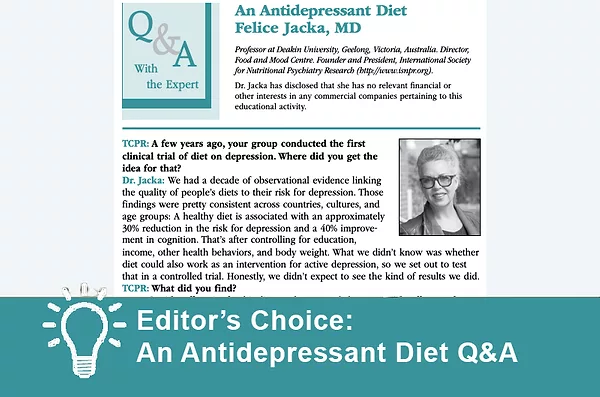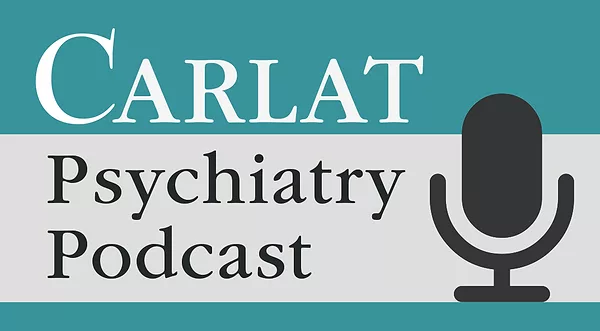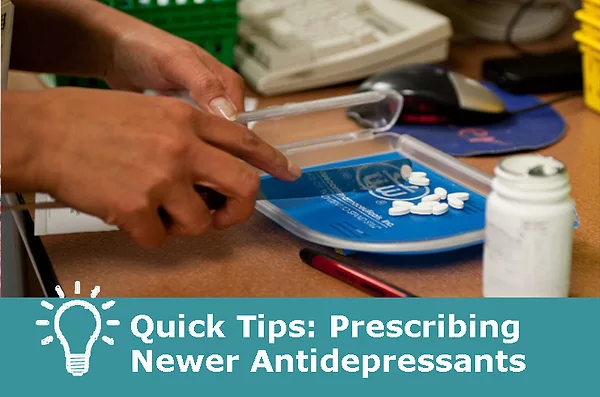Articles Tagged with ''antidepressants''
Can Buprenorphine Improve PTSD Symptoms?
Thomas Jordan, MD
Dr. Jordan has disclosed that he has no relevant financial or other interests in any commercial companies pertaining to this educational activity.
Read More
Treating Sexual Side Effects
Adam Strassberg, MD.
Psychiatrist in private practice in Palo Alto, CA.
Dr. Strassberg has disclosed that he has no relevant financial or other interests in any commercial companies pertaining to this educational activity.
Read More
An Antidepressant Diet
Felice Jacka, MD
Professor at Deakin University, Geelong, Victoria, Australia.
Director, Food and Mood Centre. Founder and President, International Society for Nutritional Psychiatry Research.
Dr. Jacka has disclosed that she has no relevant financial or other interests in any commercial companies pertaining to this educational activity.
Read More
Trintellix and Cognition: A Closer Look
Michael Posternak, MD.
Psychiatrist in private practice, Boston, MA
Dr. Posternak has disclosed that he has no relevant financial or other interests in any commercial companies pertaining to this educational activity.
Is Ketamine Just Another Opiate?
Michael Posternak, MD.
Dr. Posternak has disclosed that he has no relevant financial or other interests in any commercial companies pertaining to this educational activity.
Read More
Treatment-Resistant Depression: Some Introductory Tips
Chris Aiken, MD
Editor-in-chief of The Carlat Psychiatry Report
Practicing psychiatrist, Winston-Salem, NC.
Dr. Aiken has disclosed that he has no relevant financial or other interests in any commercial companies pertaining to this educational activity.
Read More





_-The-Breakthrough-Antipsychotic-That-Could-Change-Everything.webp?t=1729528747)



